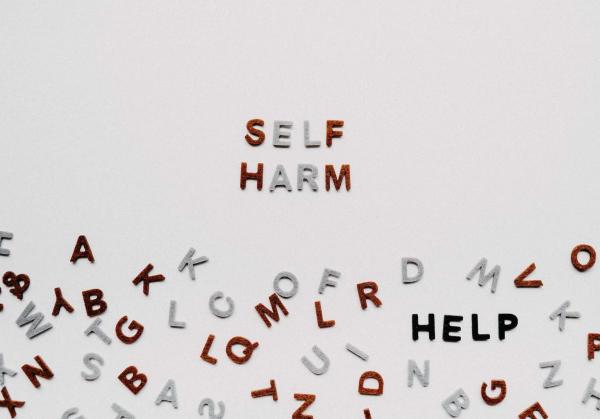
Clearwater,United States – March 15, 2022 —
Unless you have young or adolescent children or are involved in mental health circles, you may not realize that up to 17 percent of adolescents and nearly 5% of adults will experience some version of self-harm. [1]
From skin-cutting to head-banging to burning, these acts of self-harm often go unnoticed because they are on an area of the body which can be covered or excused as an accident. If you have a loved one whom you feel may be in peril of hurting themselves watch for areas of the body that show signs of repeated injury or harm, bruises, burns, cuts, scabs etc.
Overdressing, particularly in warm weather can be an attempt to hide evidence of self-abuse, or repeatedly making excuses as to how they may have been injured. They may also appear withdrawn or exhibiting a lack of interest in people or activities they previously enjoyed.
Often children or teens have been brushed off as attention-seekers, but this dismissive attitude will not get at the core of the problem and can sometimes serve to justify no assistance.
The Florida chapter of the Citizens Commission on Human Rights (CCHR), warns that the natural progression laid out by the psychiatric community often leads to a prescription of psychotropic drugs with no resolution of the original problem. For children who have exhibited threat of self-harm at school, Baker Acting (the involuntary seizure and commitment to a psychiatric facility for up to 72 hours) is often the solution. [2]
However, there are studies that show certain lifestyle changes have been effective in treating those that self-harm.
Information from almost 500 individuals who were being treated for self-harm or suicidal ideation was collected over 11 years from lifestyle and mental health measures. The information gathered revealed that “poor diet, and smoking were all associated with a higher average number of deliberate self-harm episodes” and that “balanced meals and smoking were the lifestyle behaviours that were found to have the strongest independent association with repeated self-harm”. [3]
“The prescribing of psychiatric drugs with side effects such as suicide to those that self-harm is criminal,” states the president for CCHR Florida, Diane Stein. “When someone you know is deliberately hurting themselves it can be very confusing and upsetting which is why it is important that a person seek help from a competent non-psychiatric medical doctor as a first course of action.”
About CCHR: Initially established by the Church of Scientology and renowned psychiatrist Dr. Thomas Szasz in 1969, CCHR’s mission is to eradicate abuses committed under the guise of mental health and enact patient and consumer protections. L. Ron Hubbard, founder of Scientology, first brought psychiatric imprisonment to wide public notice: “Thousands and thousands are seized without process of law, every week, over the ‘free world’ tortured, castrated, killed. All in the name of ‘mental health,’” he wrote in March 1969.
SOURCES:
[1] Who self-injures? apa.org/monitor/2015/07-08/who-self-injures
[2] Self-injury/cutting- diagnosis and treatment mayoclinic.org/diseases-conditions/self-injury/diagnosis-treatment/drc-20350956
[3] Should we increase the focus on diet when considering associations between lifestyle habits and deliberate self-harm? bmcpsychiatry.biomedcentral.com/articles/10.1186/s12888-020-02950-0
Contact Info:
Name: Diane Stein
Email: Send Email
Organization: Citizens Commission on Human Rights of Florida
Address: 109 North Fort Harrison Avenue, Clearwater, Florida 33755, United States
Phone: +1-727-442-8820
Website: http://www.cchrflorida.org/
Source: PressCable
Release ID: 89070662
